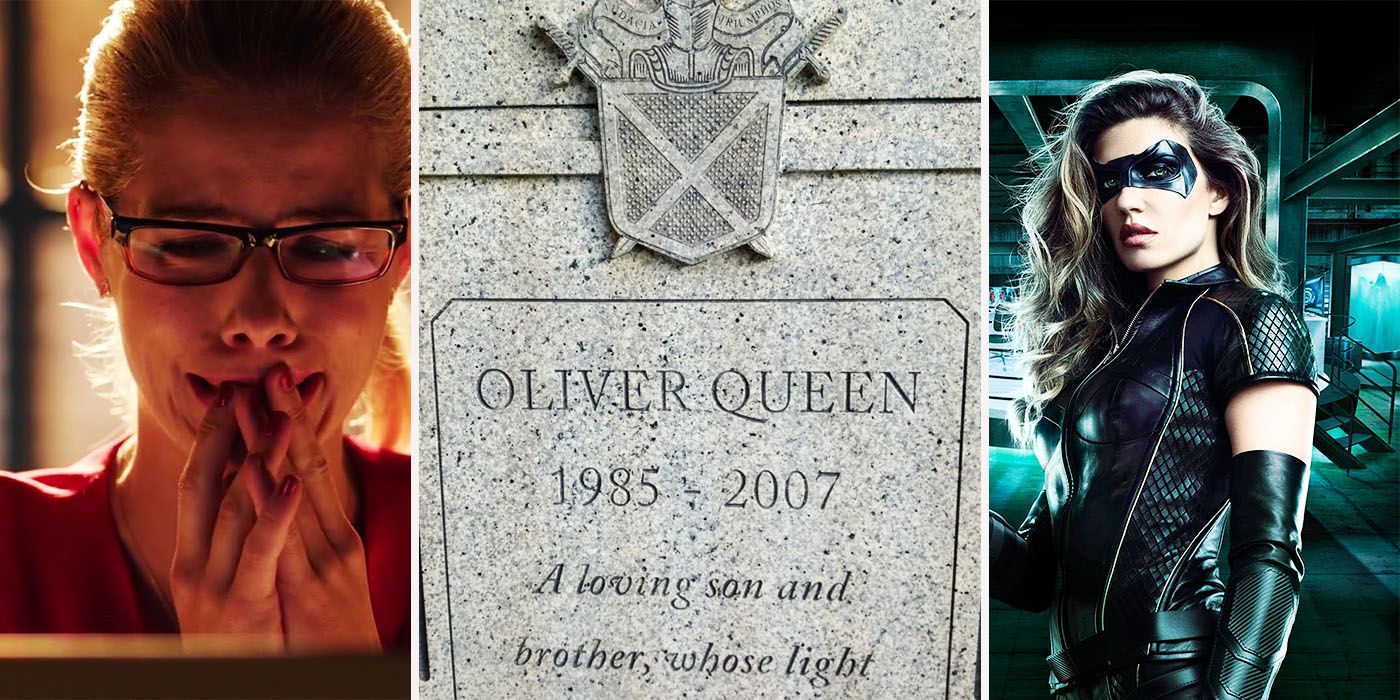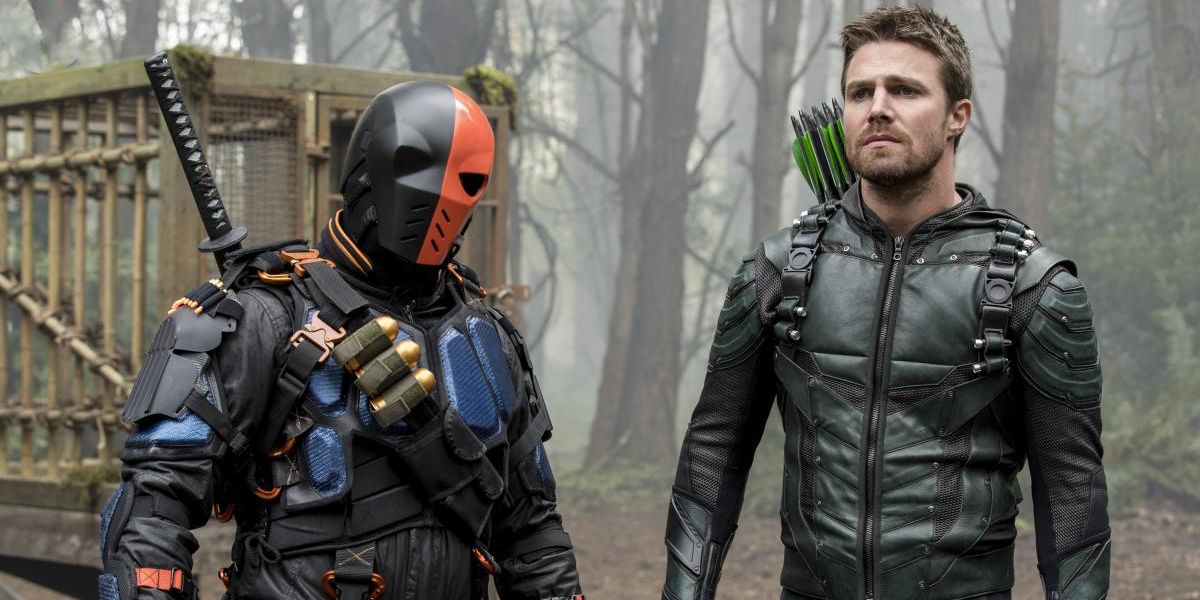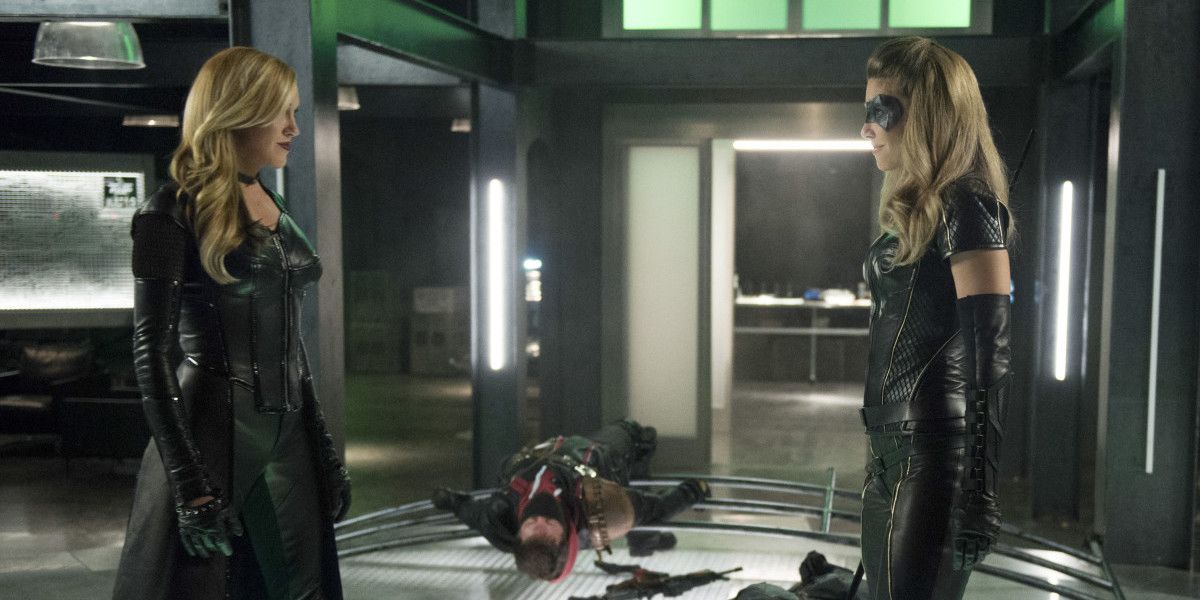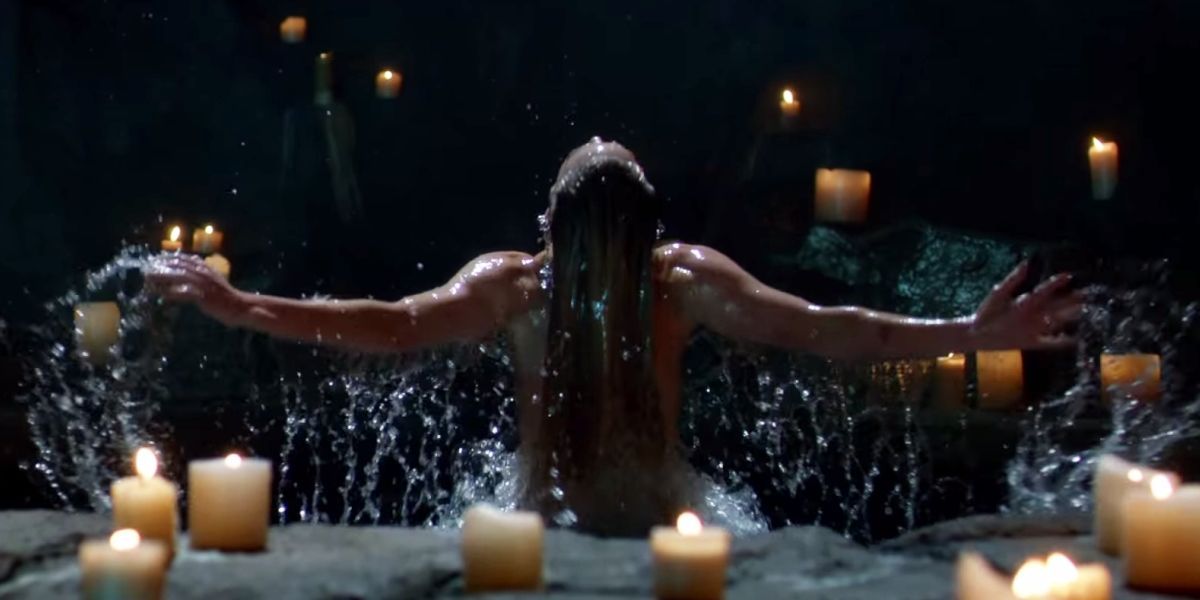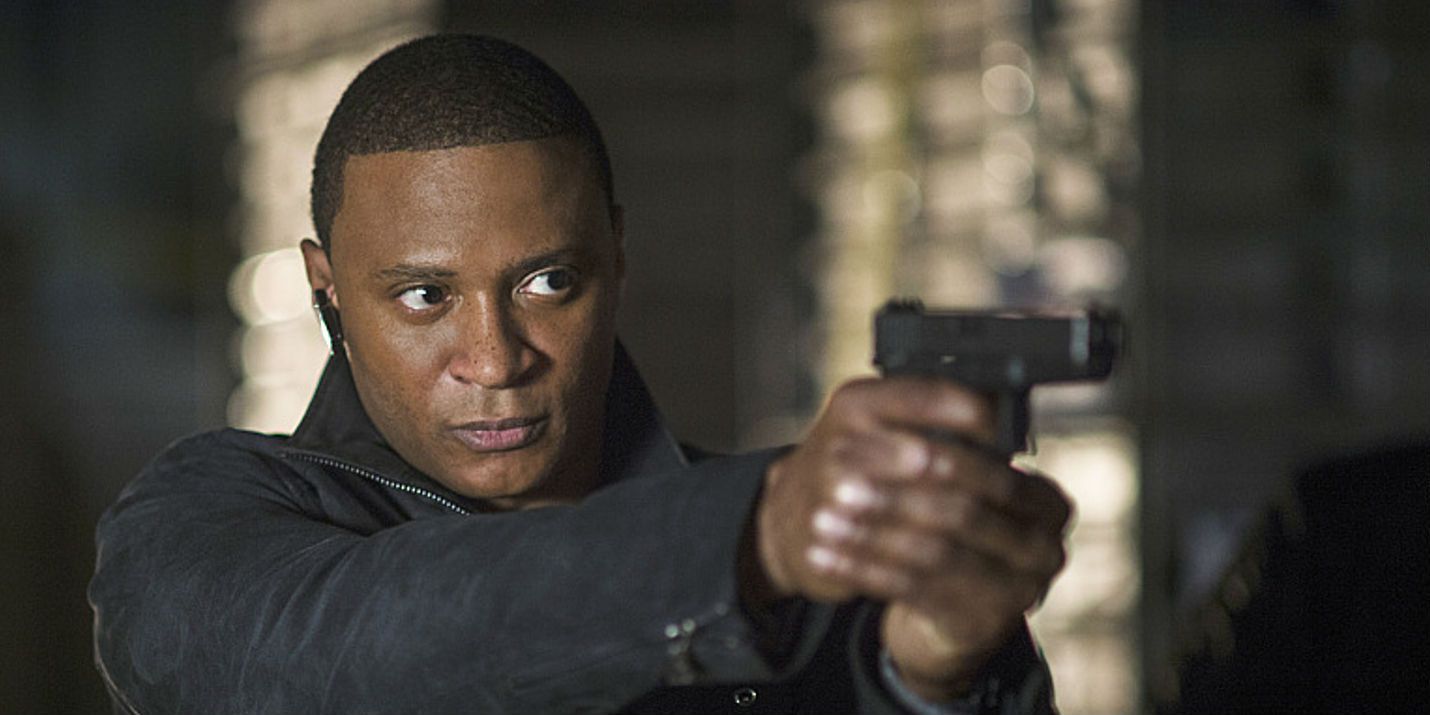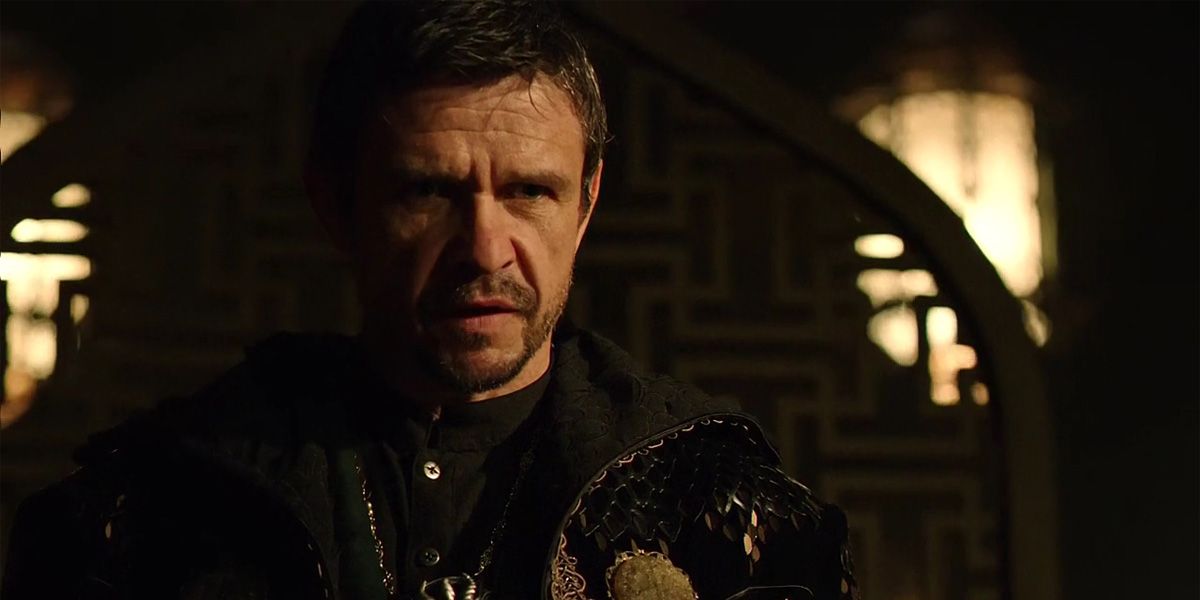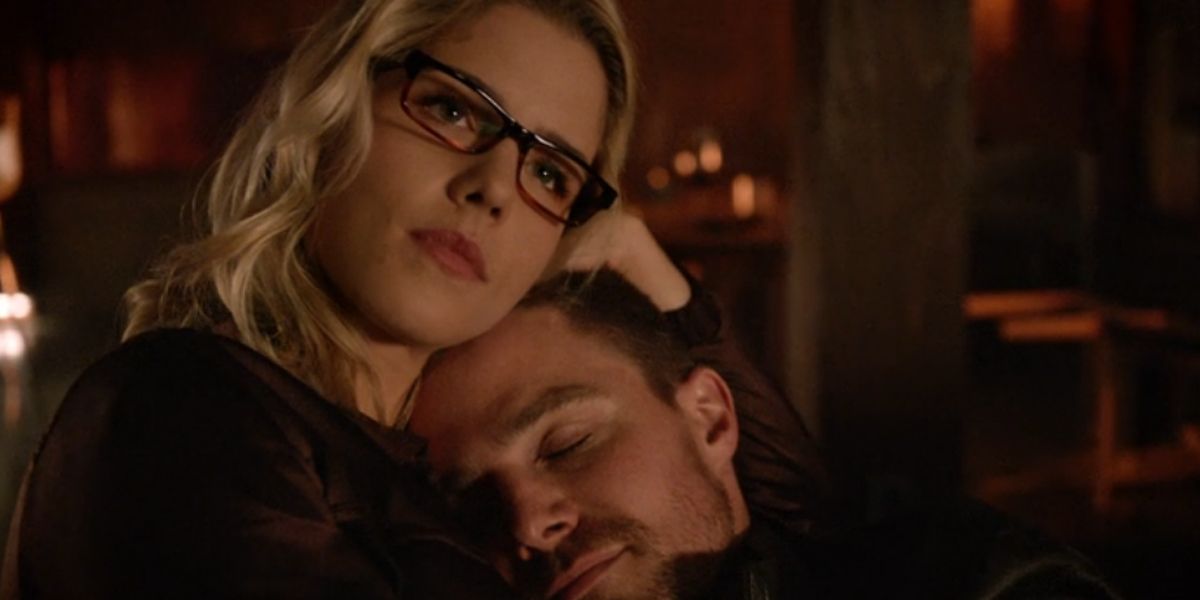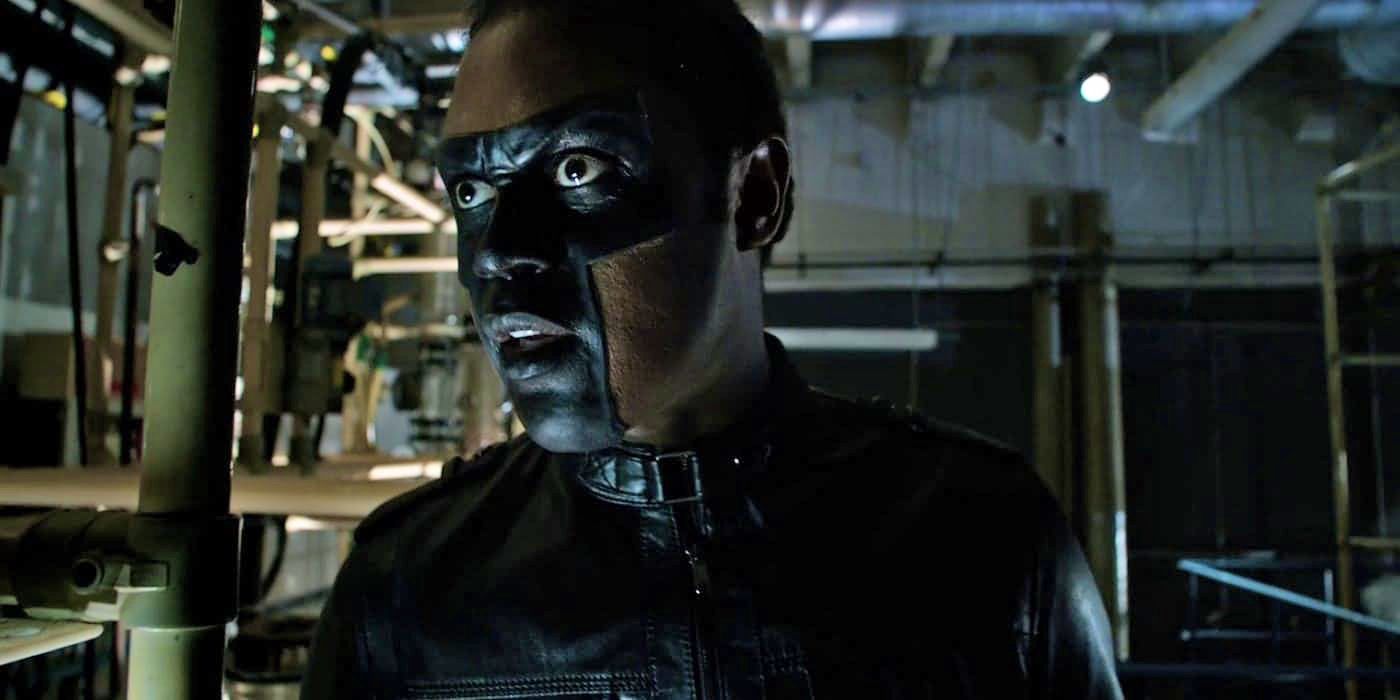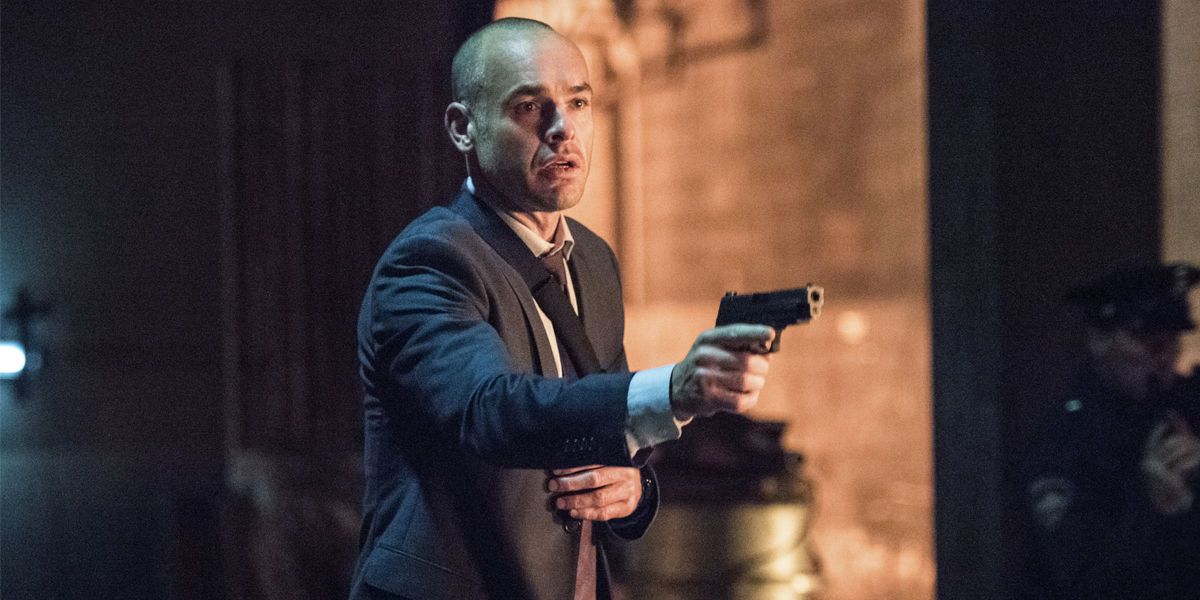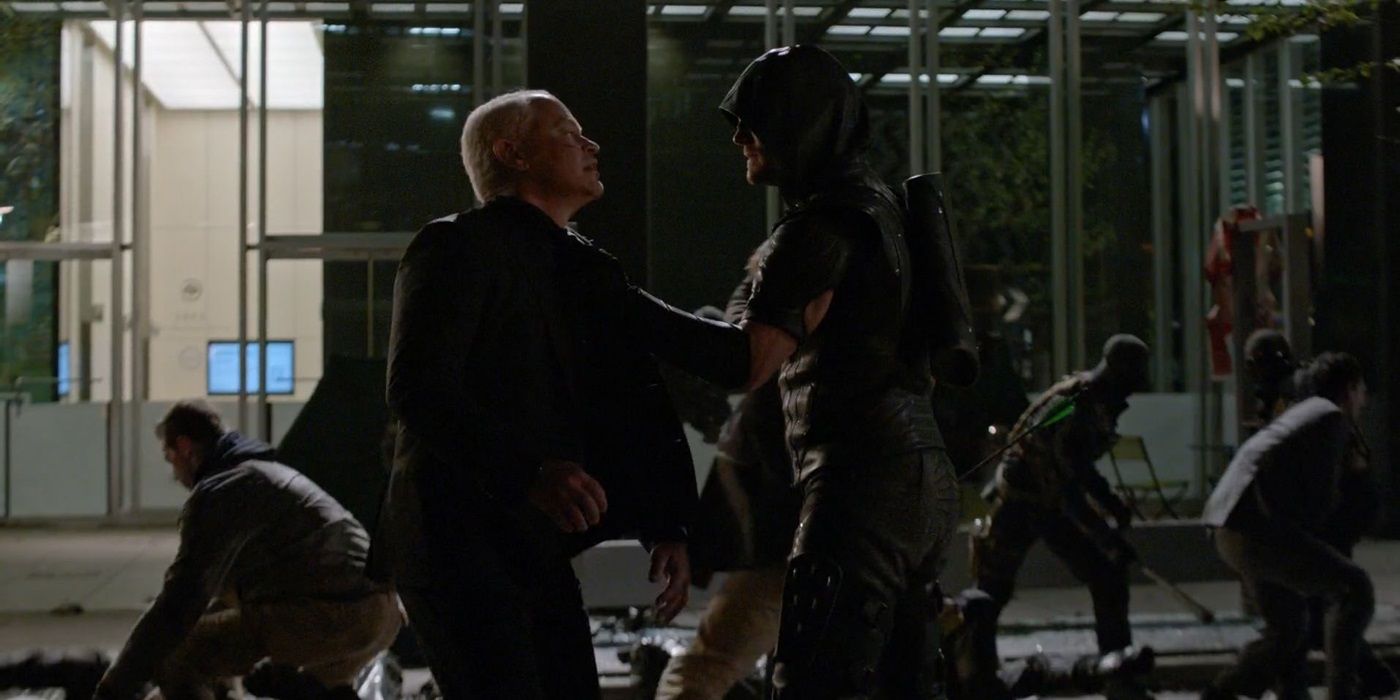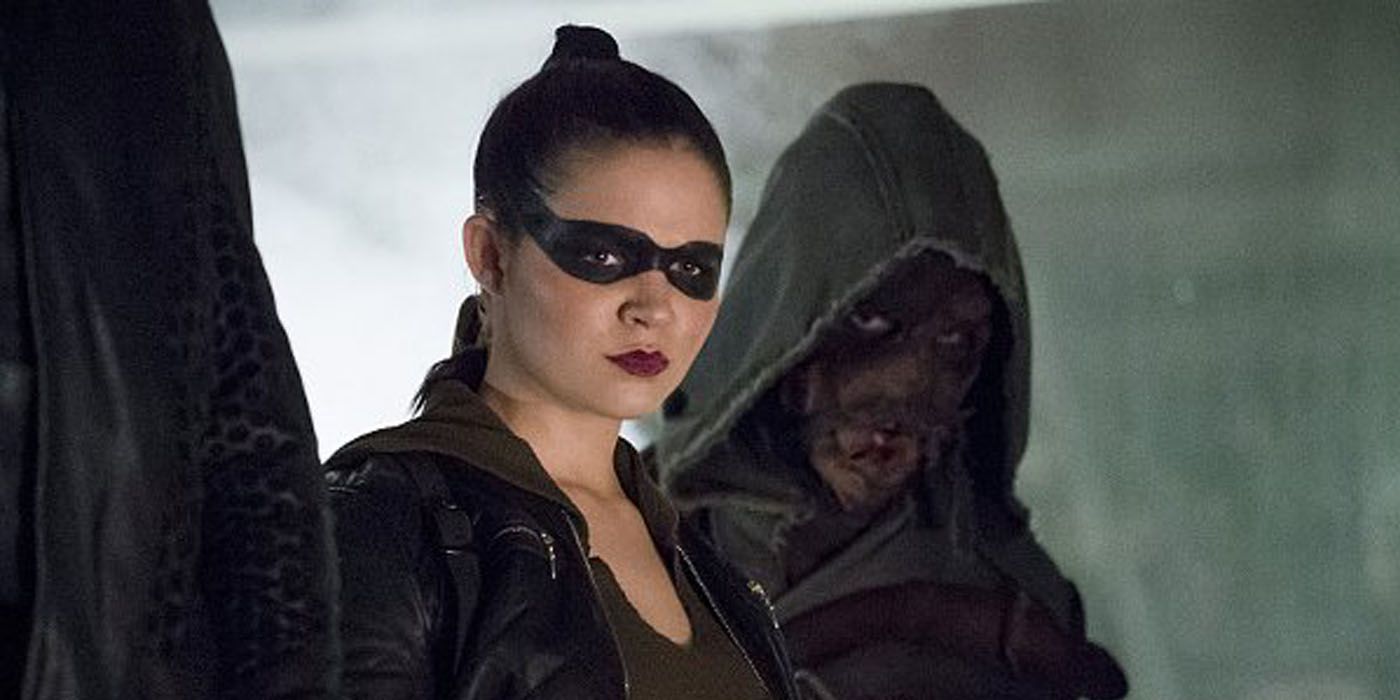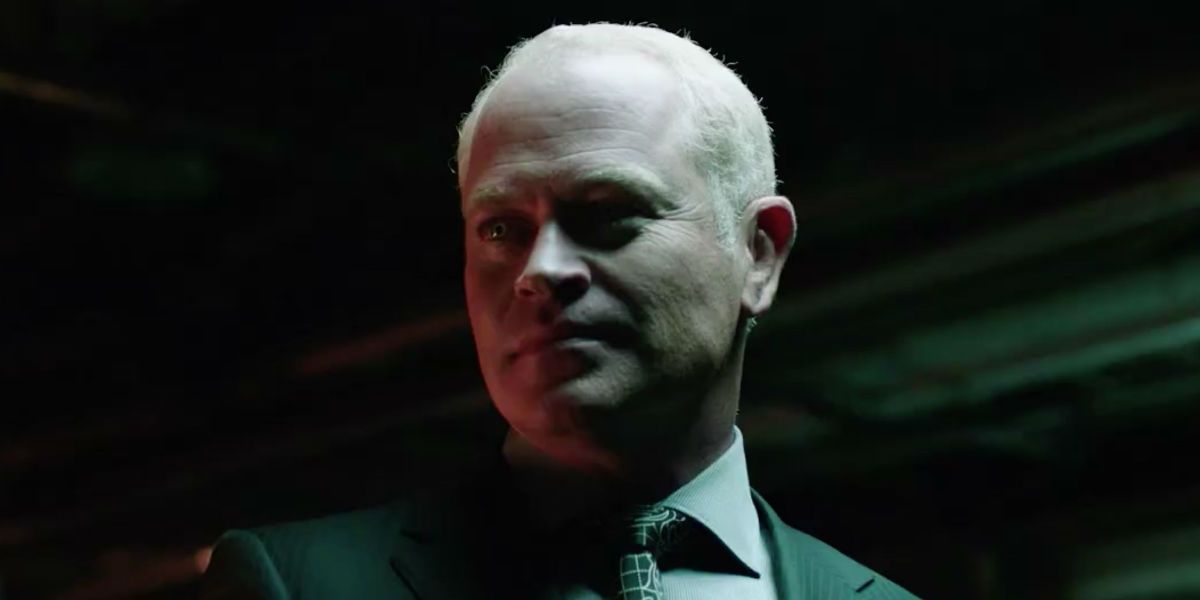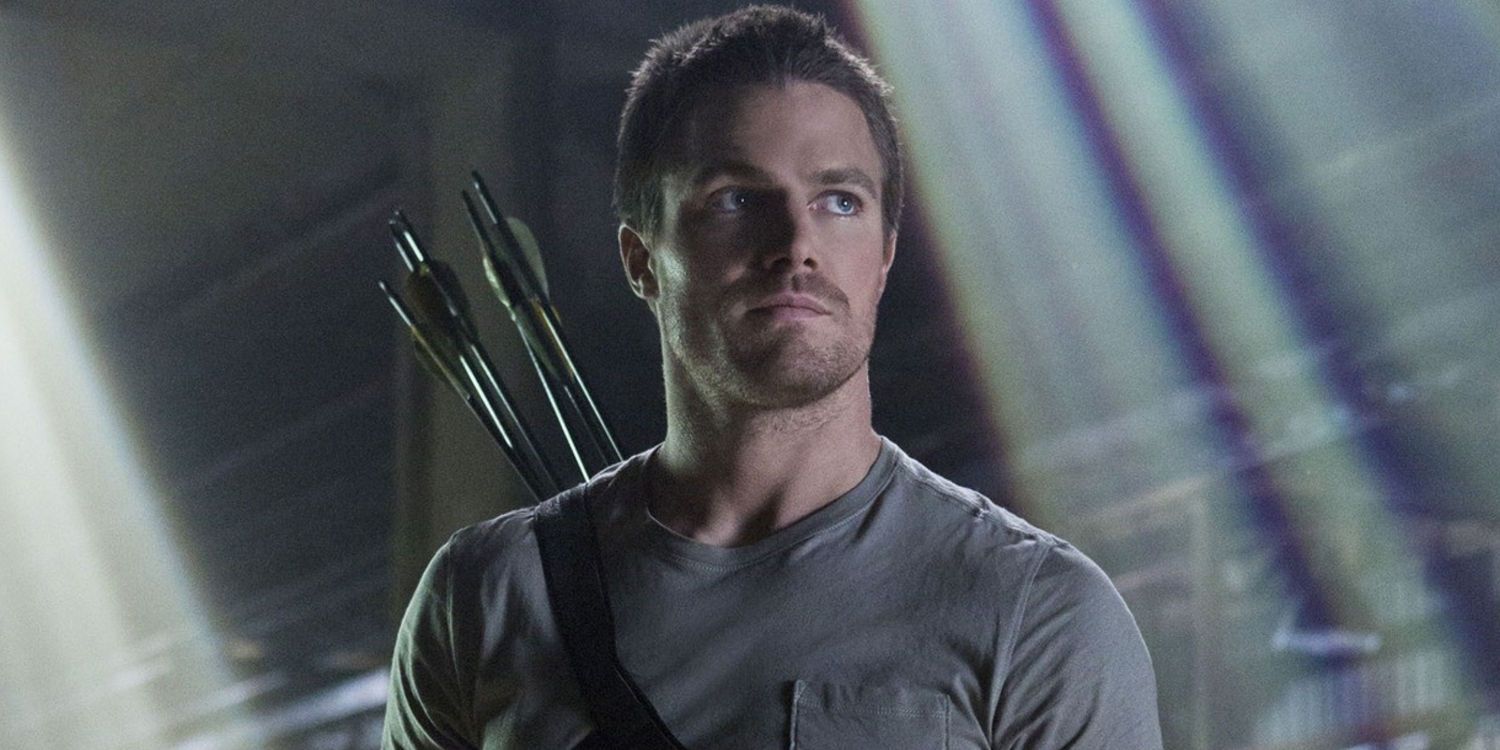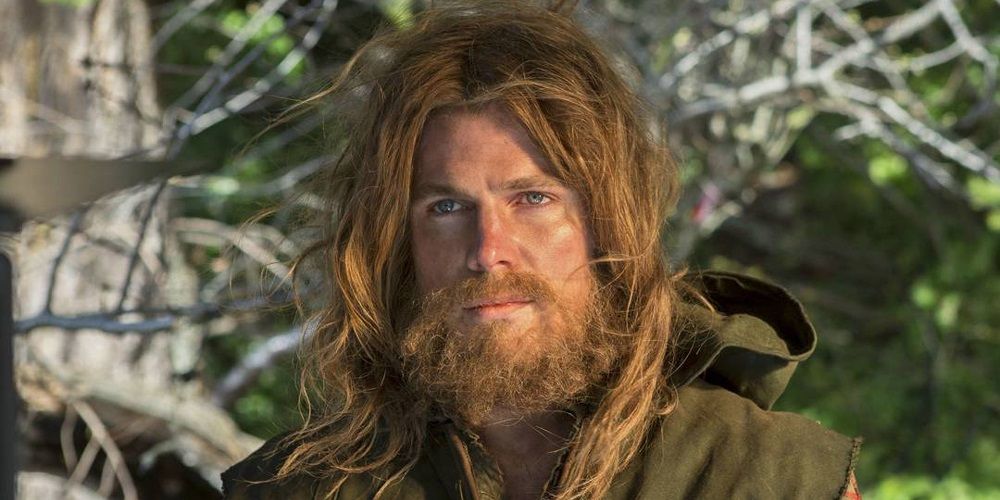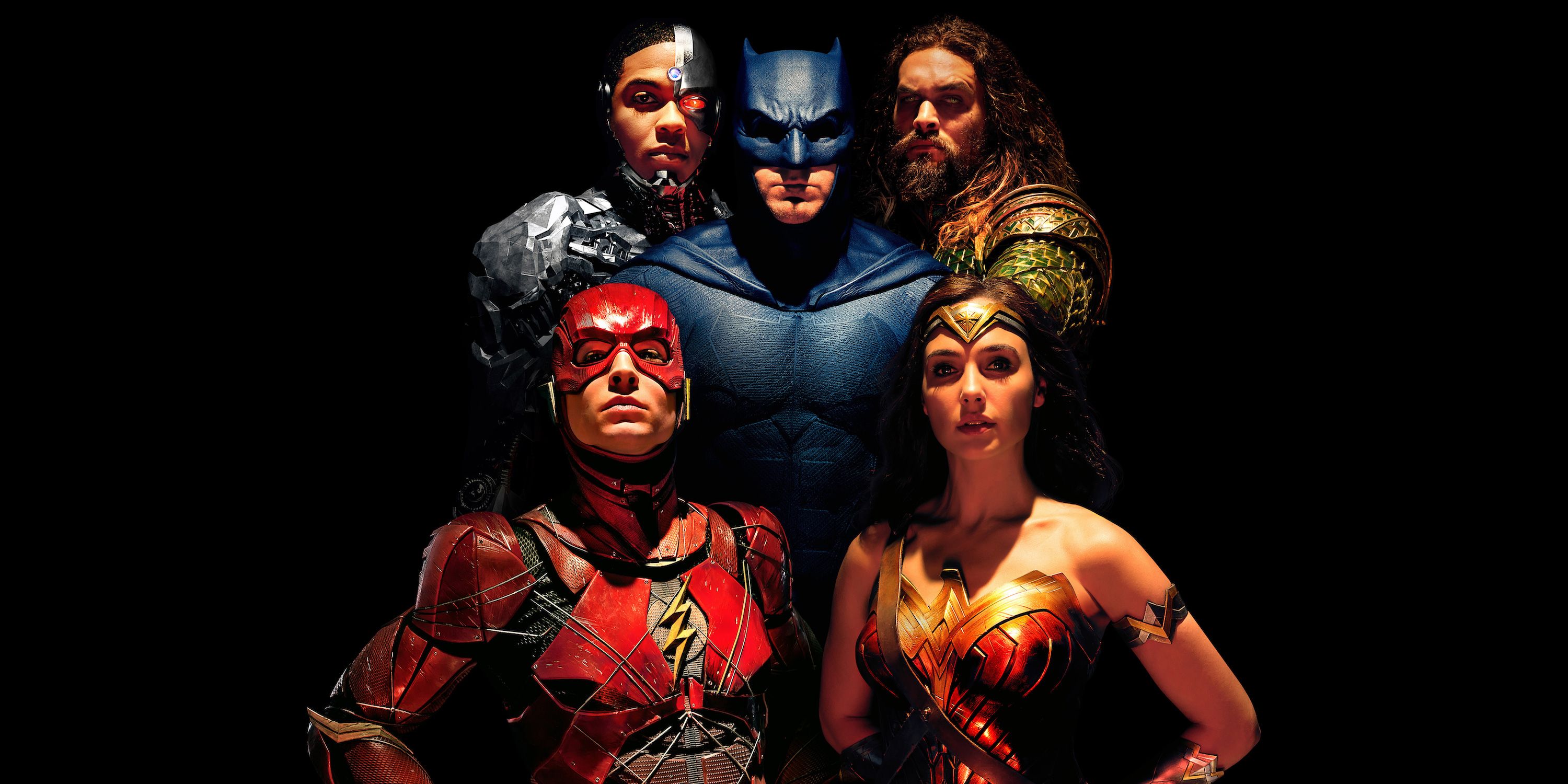When it began in 2012, few could have predicted the CW’s Arrow would be the genesis of a massive television version of the DC Universe, spinning off in fantastical multiple directions with The Flash, Legends of Tomorrow, and Supergirl. Arrow’s success paved the way for an entire franchise of shows that showcased the thrills of the DC Universe in crowd-pleasing live-action.
And yet, six years in, Arrow is showing its age. Not only is the show approaching the point where most TV series simply run out of creative gas, it also finds itself out of step with the universe it spawned. It's a relic of a time when comic book adaptation were still aiming for the dark, gritty aesthetic of Christopher Nolan’s Batman films instead of the brightly-colored, lighter-hearted charms of the Marvel Cinematic Universe.
The CW has a history of letting shows linger long past their expiration dates, and Arrow is still a fairly solid ratings performed for the network. But from a creative perspective, Arrow should really be looking to the finish line, so it can wrap up with its narrative dignity still intact. Its current sixth season should be the year we say goodbye to Oliver Queen and friends.
These are the 15 Reasons Arrow Needs To End After Season 6.
The show keeps repeating itself
How many times can Arrow keep telling the same fundamental stories? Something of a pattern has emerged over a half decade of adventures with Team Arrow... The season starts with everyone on relatively solid ground, a big bad emerges, there’s a subplot where at least one character is lying to the rest for no good reason, Oliver has a crisis of conscience, and the villain is defeated at some personal cost. Wash, rinse, repeat.
Formulaic television is not always a bad thing, but it feels like the Arrow writers may be running out of ideas at this point. The show is teasing yet another story arc where Oliver has to publicly deny he’s Green Arrow, which is at least the third time the show has indulged in such a story.
How thick are the people of Star City to not realize the body-building mayor who keeps getting accused of being a vigilante is Green Arrow?
It doesn’t fit with the other DC CW shows
Arrow is the godfather of modern live-action DC television. Its success paved the way for The Flash, Legends of Tomorrow, and Supergirl. And yet Arrow feels utterly out of step with those shows. It’s occasionally easy to forget Oliver Queen exists in a world with super speedsters, time-traveling screw-ups, and Kryptonian refugees.
Arrow has attempted to evolve to fit in with these shows, with mixed results. Arrow’s fourth season dalliance with magic and the supernatural is generally considered to be the show’s lowest point, where it lost all sense of its world and its characters.
The proceeding seasons attempted to reset things somewhat, but Arrow still feels like something of an obsolete outlier in the current DC television landscape it helped to create.
The ongoing mess of Black Canary(s)
Arrow really set itself up to fail with Black Canary. Katie Cassidy was cast as Dinah Laurel Lance in the days when the show was still paying lip service to being something of a CW teen romance show, and while she would eventually take on the mantle of Black Canary, it never really fit her. Sara Lance’s tenure as the Canary was more impressive, but it’s hard to imagine her as anything other than White Canary on Legends of Tomorrow at this point.
After Laurel’s death, the show attempted a fresh start by bringing in Dinah Drake (Juliana Harkavy), a woman who conveniently shared the previous Canary’s name and a similar sonic scream ability. Harkavy has done solid work in that role, but Dinah Drake feels decidedly like a minor player on the show.
Black Canary is a DC heavyweight who should have been the second most important character on this show. She deserves better than what she got on Arrow.
Death has lost all meaning
This is less of a big deal on shows like The Flash and Legends of Tomorrow, which are much more overtly science fiction/fantasy shows, and so lean into some of the more unrealistic tropes of superhero stories. But even in the face of its increasingly superpowered world, Arrow has always framed itself as the gritty, street-level CW DC show.
There are meant to be real-world consequences in Oliver Queen’s world.
And yet it’s almost impossible not to meet every seemingly major death on the show with an eye roll. Thea and Sara were both revived by Lazarus Pits; Earth-2 Laurel has taken up residence in her dead counterpart’s reality; Malcolm Meryln has died and come back to life so many times he feels like the Wyle E. Coyote of Star City. It’s tough to take a show like this seriously when there are no real stakes.
Diggle side-lined
It’s easy to forget now, but there was a time when John Diggle was essentially the co-lead of Arrow. Oliver’s most trusted ally, Diggle was battling his own demons over the (apparent) death of his brother at the hands of Deadshot, as well as his fractured relationship with his ex-wife, A.R.G.U.S. agent Lyla Michaels.
But as Diggle resolved those relationships - he ended up killing his not-dead brother to save his friends, and he married Lyla and had a daughter who got Flashpointed into a son – he’s disappeared into the show’s background, nowhere near the vital character he once was.
Diggle’s story, like much of the main cast, is essentially over, so the show has understandably struggled to say anything new about him in recent seasons.
They’re running out of Batman stories to steal from
Green Arrow got his start as something of a poor man’s Batman, so it’s not exactly stunning that the television adaptation would borrow from its much more famous corporate cousin. But the Batman influences have enveloped the show so completely it can be difficult to see any trace of Green Arrow’s own impressive source material.
The show started off as a fairly unabashed Batman Begins homage/rip-off, and while it did eventually find its own voice, it’s borrowed the League of Assassins, the Lazarus Pits, Ra’s Al Ghul and his daughters from the Caped Crusader.
Quite simply, the show is running out of stuff to swipe from Batman, and has never really exhibited a desire to explore some of Green Arrow’s more noteworthy comic stories.
The Olicity drama
Arrow’s writers have clearly been of two minds on the relationship between Oliver and Felicity for awhile now. On the one hand, they clearly acknowledged the chemistry between the two as early as the second season, setting in motion a “will they/won’t they” dynamic between the two that they’ve milked for a lot of melodrama over the years. On the other hand, they seem hellbent on preventing Oliver from being romantically fulfilled, so they’ve manufactured several hilariously dumb plot points to keep the two apart over the years.
This has to stop soon. Five years in, the show has made it abundantly clear that Oliver and Felicity are meant to be together, and to deny that for much longer would just be cruel. Yet the show’s writers seem largely uninterested in telling stories about Oliver and Felicity in a happy relationship, so once it finally does happen, chances are the lights in the Arrowcave will be going out.
Curtis should be on Legends of Tomorrow
Arrow’s attempts to expand its core cast in later seasons have been a mixed bag, but the one unqualified winner has been Curtis Holt. A brilliant young inventor, Curtis became something of an auxiliary Felicity early on, before transitioning into the full-fledged superhero Mr. Terrific.
And yet Curtis has always felt just a little out of step with the rest of Arrow’s cast. His wide-eyed wonder and penchant for super science seems slightly out of place on the mean streets of Star City.
If Arrow were to end, it would be a no-brainer to have Curtis board the Waverider and take on bonkers time travel adventures with the cast of Legends of Tomorrow. His goofball energy and fantastical tech would be much more at home on that acid trip of a show than on the brooding, gritty Arrow.
Quentin Lance has become a sad shell of his former self
Detective Quentin Lance was initially a somewhat benevolent adversary for Oliver, resenting both Green Arrow for his brand of vigilante justice and blaming Oliver Queen for the death his daughter, Sara. Eventually, once it was revealed Sara survived Lian Yu and Green Arrow was ultimately a force for good in Star City, Lance became Green Arrow’s answer to Jim Gordon; a good cop attempting to clean up his corrupt city with the help of a vigilante.
But Lance began to unravel in Arrow’s fourth season, where he bafflingly found himself working with Damien Darhk for incredibly dumb reasons, and descended into alcoholism in the wake of Laurel’s death. Arrow has done substance abuse stories well before, but Lance just seems like he’s sleepwalking through his life at this point, lacking the fire and drive that once made him such a compelling character.
Oliver’s “no kill” code keeps getting fuzzier
In Arrow’s first season, Oliver really had no moral qualms about killing mobsters and drug dealers. But in the show’s second season, Oliver was attempting to reframe himself as a hero, rather than a vigilante, and took up a no-kill policy, only taking someone’s life when there was no other way to save innocent lives. It was a nice evolution of the character, and seeing him struggle with that moral code led to some great moments.
And then he started killing guys again. The show never really bothered explaining this, and it has significantly clouded Oliver’s status as a hero in the eyes of many of the show’s fans, while the fact it’s never really acknowledged in the show itself makes it all the more frustrating.
It’s a bizarre, pointless character regression that suggests the show has lost sight of what it’s trying to say.
The new cast members are not as compelling
Arrow has attempted to expand its cast a few times over its run, the most significant overhaul taking place in the show’s fifth season, when Ragman, Mr. Terrific, Wild Dog, and Artemis all took up residence on Team Arrow.
The results have been decidedly mixed; only Curtis could be argued to be an essential addition. Artemis was eventually revealed to be an agent of the villain Prometheus, Ragman unceremoniously departed the show, and Wild Dog has yet to really find his place.
Virtually all of these characters felt like desperate attempts to pump new blood into a show that was getting tired, but they were met with limited success. Some of them felt like they belonged on different shows, and none of them really made Arrow’s world any more interesting.
Diminishing returns with villains
Green Arrow has never been a character with a cavalcade of great villains. Indeed, after using his antagonist – Merlyn – in season one, the show brought in Teen Titans baddie Deathstroke to be season two’s main villain. Manu Bennett’s Deathstroke was far and away the show’s most impressive big bad, as he had genuinely personal grievances with Oliver, and gave an intense, unforgettable performance.
The show had less success with Ra’s Al Ghul, Damien Darhk, and Prometheus. Those villains felt like much more thinly drawn characters that were sometimes buoyed by strong performances, but at the end of the day were minor, impersonal threats to Oliver and friends.
To be fair, there just aren’t that many great Green Arrow villains, and unless the show intends to continue pilfering other heroes’ bad guys, this is a problem without a solution.
Oliver’s story has reached a natural end point
Arrow is, at the end of the day, the story of Oliver Queen, the prodigal son who returns to his hometown a deeply damaged man after a hellish five years abroad. When the series started, Oliver was barely a functioning human, consumed by his lethal brand of vigilante justice.
That’s not the case anymore. Oliver is still not a perfect man, but he’s a much more well-rounded one. He’s helping Star City both as Green Arrow and as its mayor; he’s found a surrogate family in his team of fellow crime fighters; he’s even raising a son on his own, something of a full circle for a man who was obsessed with avenging his father’s death when we first met him.
Oliver will surely face some further hardships, but he’s essentially reached his final evolution as a character.
The flashback story is over
From the very beginning, Arrow’s structure relied on offering insight into Oliver’s present day trials by looking back on his days stranded on Lian Yu, a framing device borrowed from Lost.
The flashbacks weren’t always popular (season 3’s Hong Kong excursion was particularly interminable), but they were an essential component of how the show told its stories. When they worked, like in season 2, they made the show something special.
Season 5 concluded the flashback story, ending where the series began with Oliver being rescued from Lian Yu. It’s unclear how season 6 will utilize flashbacks - whether they be an occasional tool or perhaps altogether abandoned - but it feels like a crucial aspect of the show is gone, with nothing immediately apparent to replace it.
It’s time for Green Arrow and Black Canary to join the DCEU
DC’s internal rules on what characters are allowed to have multiple live action iterations are somewhat hazy, but based on some recent decisions, we can make some assumptions. Well-known, A-list characters like Superman and the Flash are allowed to exist in multiple iterations, while lower profile characters like Deadshot and Amanda Waller are not. Green Arrow and Black Canary probably fall closer to the latter group, which means for us to get cinematic version of the characters, Arrow would likel have to end.
And it’s probably time for both. DC’s cinematic universe could use more street level characters like Oliver and Dinah, perhaps more faithfully adapted than in their television counterparts. And Arrow, while a groundbreaking show that paved the way for a lot of great DC television, is simply out of storytelling gas.
Arrow’s legacy will live on in the other CW shows, but it’s time for the character to graduate to the movies.
---
Do you think it's time for Arrow to end? Sound off in the comments!

